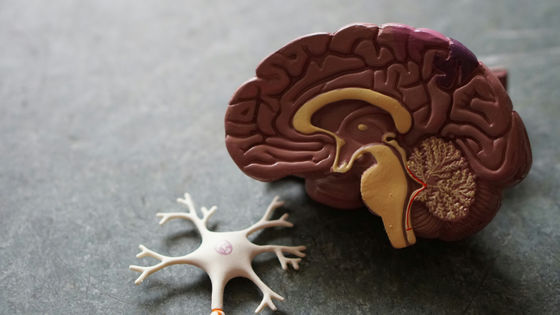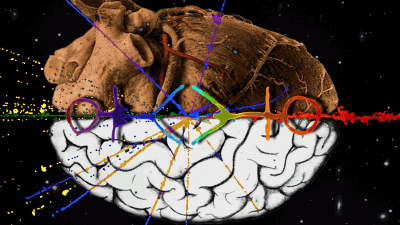Possibility of treating depression, obesity, and alcoholism by stimulating the vagus nerve

The key to depression, obesity, alcoholism – and more? Why the vagus nerve is so exciting to scientists | Health | The Guardian
https://www.theguardian.com/society/2023/aug/23/the-key-to-depression-obesity-alcoholism-and-more-why-the-vagus-nerve-is-so-exciting-to- scientists

In the late 19th century, it was discovered that compressing the main artery in the neck, where the vagus nerve runs, could be useful in preventing and treating epilepsy. Later, in the 1980s, research progressed to implanting electrical stimulation devices in the necks of epilepsy patients to calm the irregular electrical activity in the brain that causes seizures.As of 2024, electrical stimulation devices that stimulate the vagus nerve have been developed. Research is underway to treat it as an alternative to antidepressants in patients with treatment-resistant depression.
Furthermore, in the late 1990s, a research team led by Kevin Tracy, a professor of neurosurgery at the Feinstein Institute for Medical Research in the United States, found that stimulating the vagus nerve in rats reduced not only brain inflammation but also systemic inflammation. I reported it. Conventional wisdom believed that there was no relationship between the nervous system and the immune system, which causes inflammation, but research by Dr. Tracy and colleagues has shown that the vagus nerve plays a role as a bridge between the nervous system and the immune system. It turned out that he was responsible.
Subsequent research revealed that the brain communicates with the spleen, an organ that plays an important role in the immune system, by sending electrical signals to the vagus nerve. According to Tracy and colleagues, the vagus nerve is involved in the release of a neurotransmitter called
A research team led by Matthijs Cox of Radboud University Medical Center in the Netherlands asked 12 volunteers to do various activities such as swimming in ice water, rolling in snow, meditating, and practicing special breathing techniques. I instructed him to do training to stimulate his vagus nerve. The research team then injected volunteers with components of bacteria that cause inflammation and flu-like symptoms, and tested how the stimulated vagus nerve suppresses the immune response. As a result, compared to volunteers who did not undergo training, the volunteers who stimulated the vagus nerve had lower levels of inflammation and fewer episodes of flu-like symptoms. The research team led by Cox points out that the reason for the decrease in the level of inflammation is that ``inflammation may have been suppressed by the release of adrenaline .''

Furthermore, Benjamin Metcalfe of the University of Bath said, ``While it is very easy to implant a device that stimulates the vagus nerve, the vagus nerve is connected to a variety of organs, and stimulating it can cause symptoms ranging from rheumatoid arthritis to depression, alcohol abuse, and other conditions.'' 'It may be possible to treat a wide range of illnesses and disorders, up to and including addiction.' In fact, in 2016, Tracy's research team
In addition, researchers including Chris Tumaszou of Imperial College London are attaching small stimulators to the tip of certain vagus nerves to see if they can tell the brain whether the stomach is full or empty. I am. The research team is working on developing a device that can send electrical signals to the brain in response to the secretion of hunger hormones, which are released during fasting. At the same time, it can send the opposite signal to the brain that ``I'm already full.'' Rather than completely blocking the secretion of hunger hormones, controlling it may be an excellent way to control obesity. Yes,” he said.

However, Metcalf pointed out, ``The vagus nerve is connected to so many organs that it may be difficult at this stage to stimulate a specific part of the nerve.'' Still, the development of devices that can be attached to the auricle to stimulate the vagus nerve is progressing, and research is underway to prevent postural tachycardia syndrome , as well as to investigate ' long COVID, ' where symptoms of the new coronavirus infection persist for several weeks or more. Investigations are underway to address the issue.
The foreign media outlet The Guardian said, ``Research on vagus nerve stimulation is in its early stages, but if researchers can find an effective way to utilize the vagus nerve, installing a vagus nerve stimulator could bring significant benefits.'' There is a possibility.''
Related Posts:
in Science, Posted by log1r_ut







